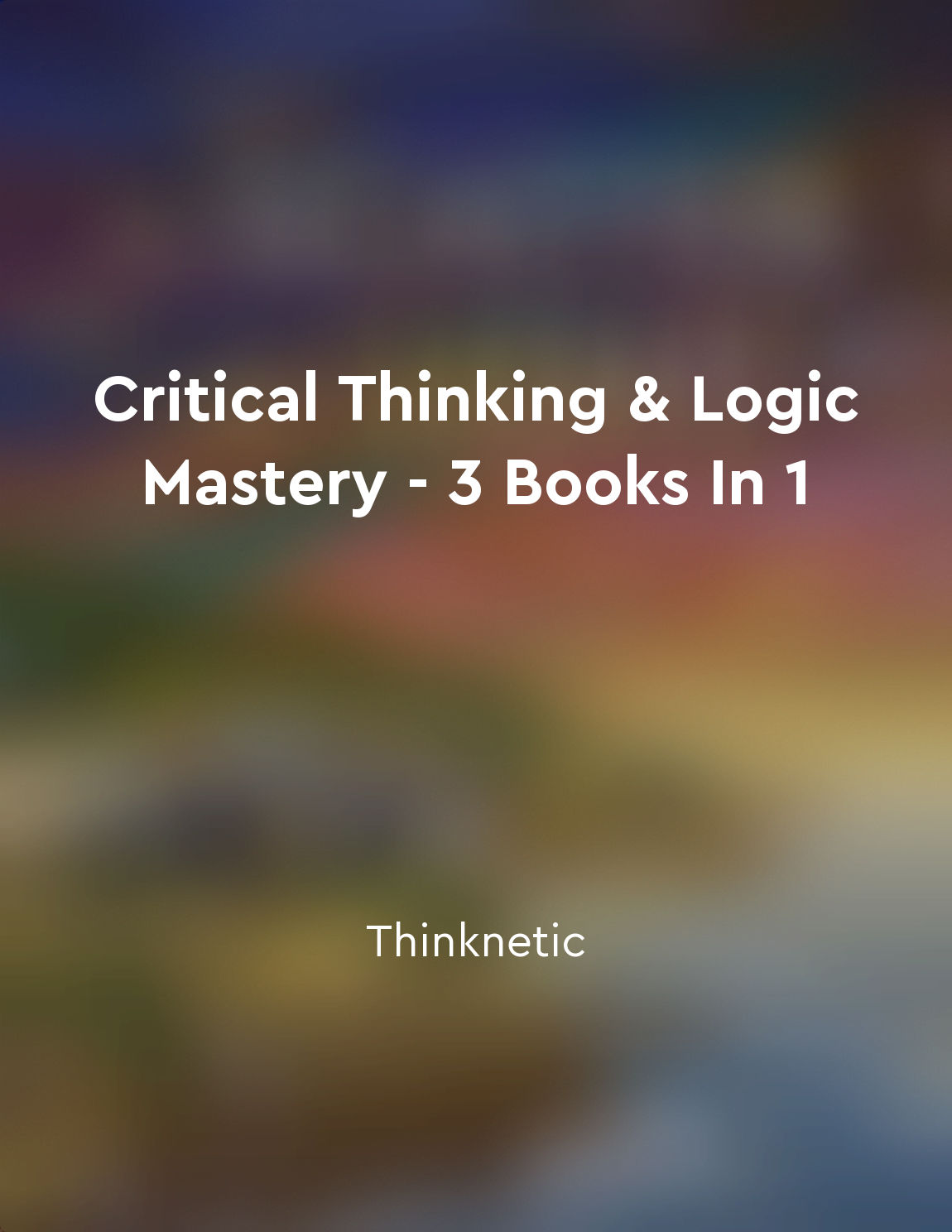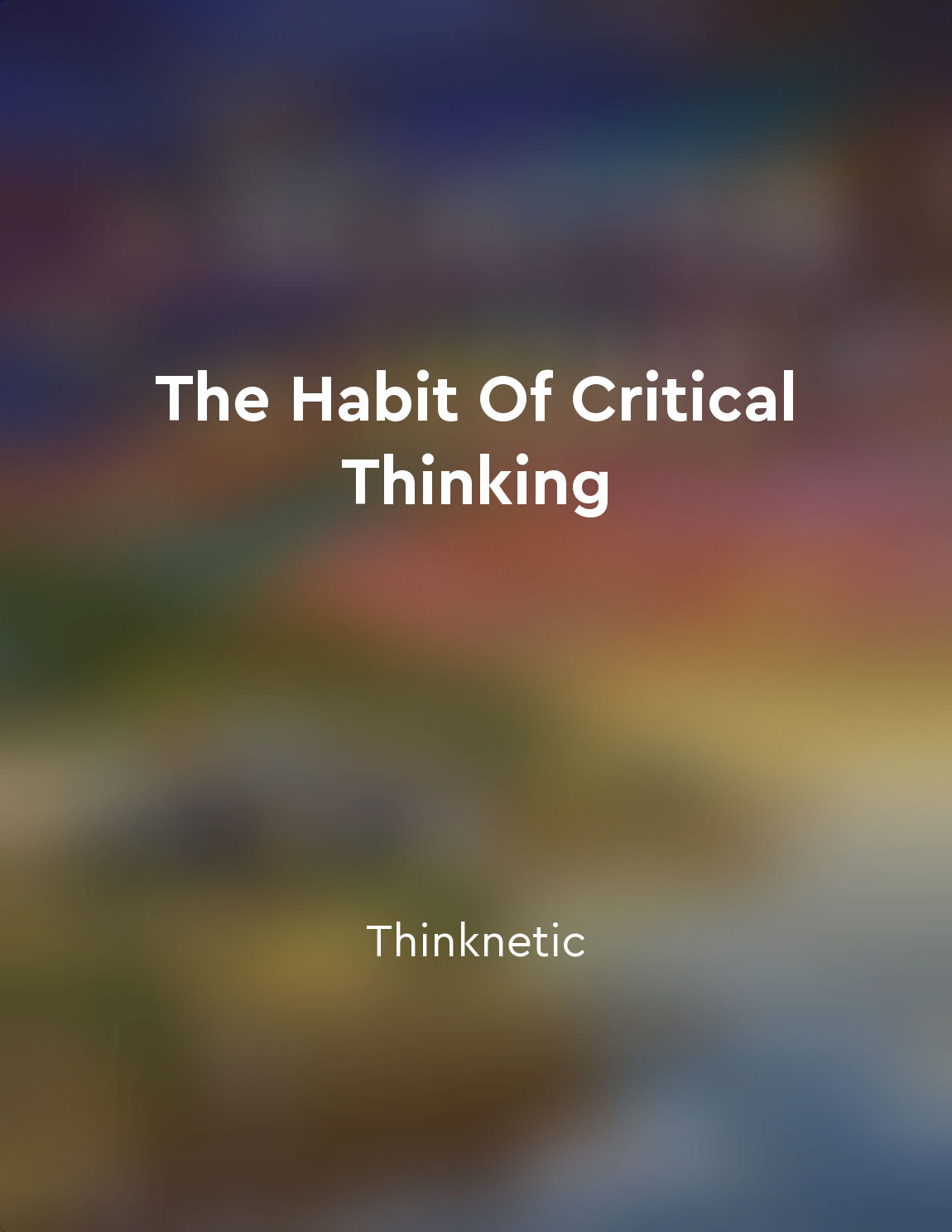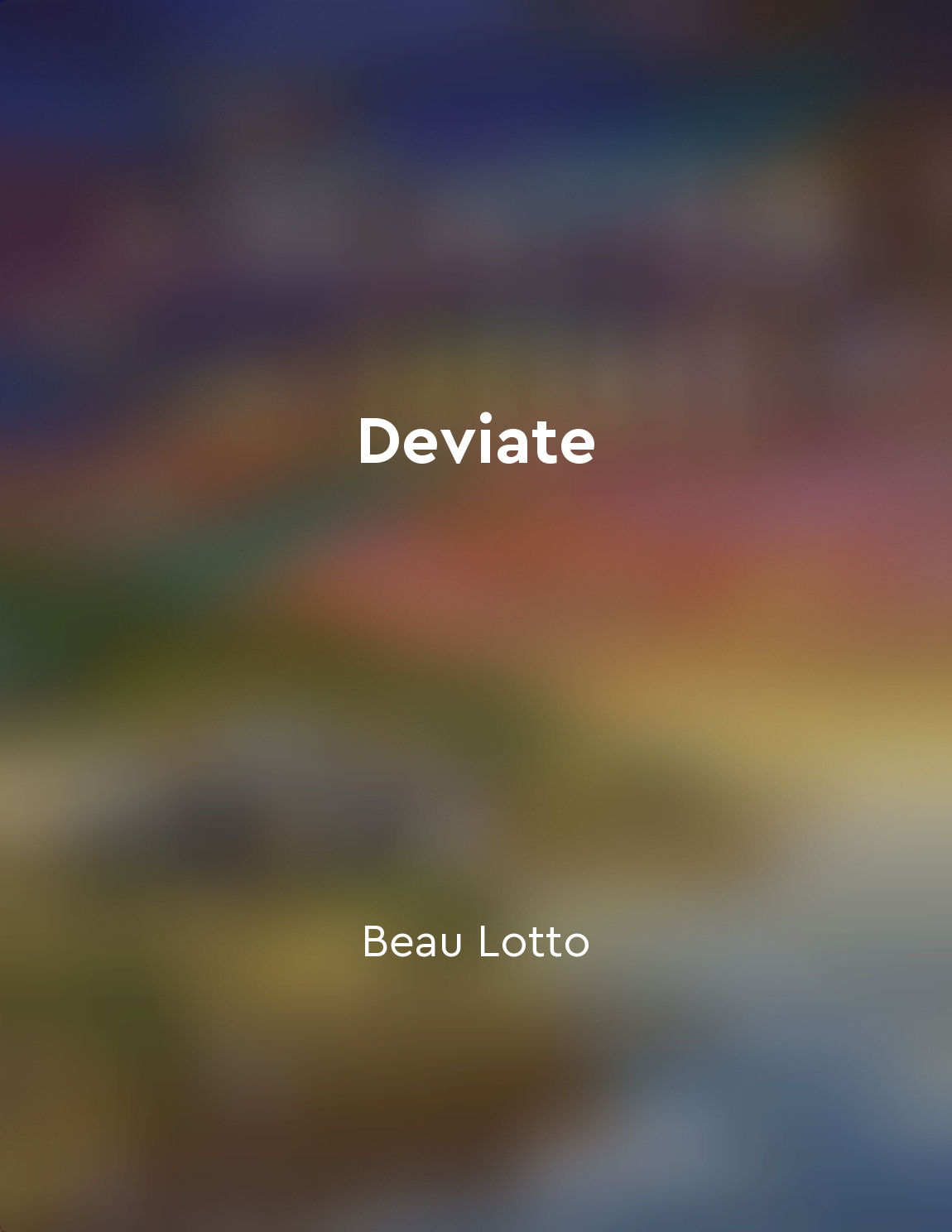Our brains make predictions based on past experiences from "summary" of Deviate by Beau Lotto
Our brains are constantly striving to make sense of the world around us. One way they do this is by making predictions based on our past experiences. These predictions help us navigate through our environment, anticipate what might happen next, and make decisions accordingly. Every time we encounter a new situation, our brains refer back to similar past experiences to try and predict what might happen. This process is known as Bayesian inference, where our brains combine new sensory information with prior knowledge to form a prediction of what is likely to occur. For example, if we see a red traffic light, our brain predicts that we should stop based on our past experiences of what a red traffic light means. This prediction allows us to react quickly and efficiently without having to consciously think about it. However, our predictions are not always accurate, as they are based on incomplete information and assumptions. This can lead to biases and errors in judgment, especially when we rely too heavily on past experiences that may not accurately reflect the current situation.- We can become more aware of our cognitive processes and learn to question our assumptions. This can help us adapt to new situations, challenge our beliefs, and ultimately deviate from our automatic responses to create new possibilities for ourselves.
Similar Posts
Achieving financial freedom is possible with the right mindset
To achieve financial freedom, one must cultivate the right mindset. This is not just about having a positive attitude, but also...
Citizens must actively engage in critical thinking to combat misinformation
In a world flooded with information, citizens are increasingly finding it challenging to discern fact from fiction. Misinformat...
Beware of the authority bias
When we face uncertainty or don't know what to do, we often look to authority figures for guidance. These could be experts, cel...

Brain seeks to conserve energy
The brain, in all its complexity, is a master at finding ways to save energy. This may sound counterintuitive, given the brain'...
Novelty: newness grabs attention
Novelty is a powerful trigger that can be used to captivate attention. When something new is introduced, people's curiosity is ...

Deductive reasoning involves making specific conclusions
Deductive reasoning is a method of logical thinking that involves starting with a general statement and then drawing specific c...

Recognize your limitations
Understanding your limitations is an essential aspect of critical thinking. It involves acknowledging that you have boundaries,...
Mastering the art of logical thinking
Logical thinking is an essential skill that can be developed and honed through practice and dedication. It involves the ability...
The criminal justice system is complex and influenced by various factors
The criminal justice system is a labyrinthine entity, a vast and intricate web of interwoven factors that shape every decision ...
Language choice can influence decisionmaking
When people make decisions, they are often influenced by the language used to present options to them. The way a choice is fram...


